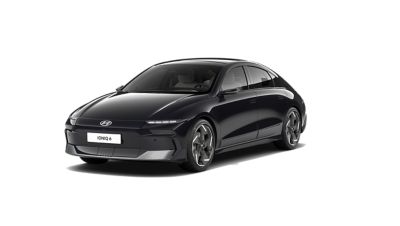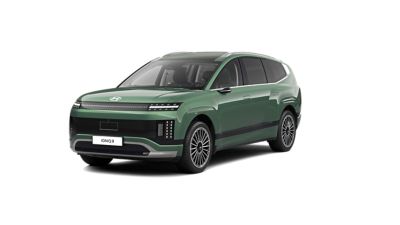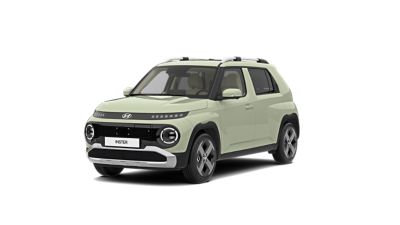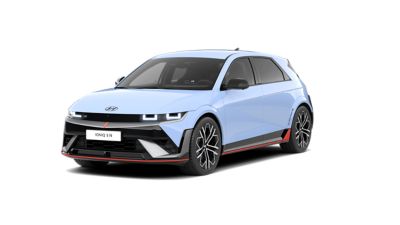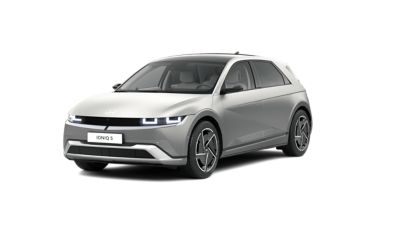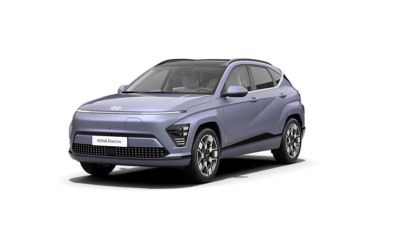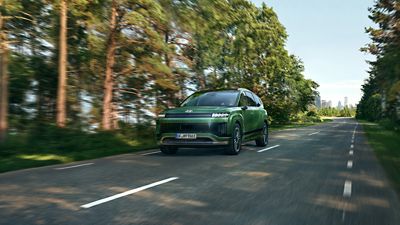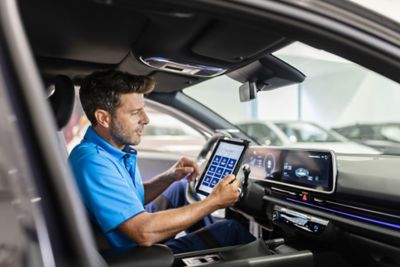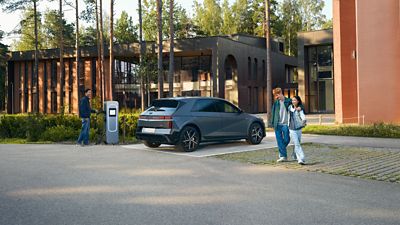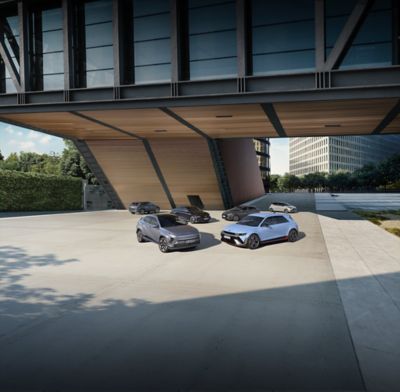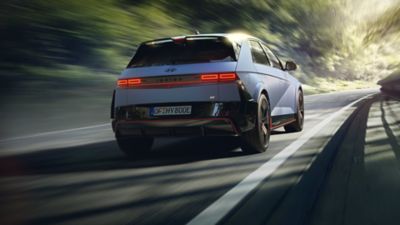Power your world.
Models
All-electric.
E-Mobility
Why go electric?
FAQ.
The charging time of an electric car varies depending on several factors such as the size of the battery, the charging power, and the type of charger used. Let's take the Hyundai IONIQ 5 as an example. Its 800V battery system can add 336 km of range in 15 minutes! It supports charging at up to 350 kW at a DC ultra-fast charging station – charging from 10 to 80% in 18 min.
All our Hyundai electric vehicles are flexible when it comes to charging, you can charge at home overnight or top up at a fast charging station on the road in just minutes. The charging time of your electric vehicle will be different depending on if you use a domestic socket, a home charging station such as a wallbox or a public fast charging station.
Learn more about charging here.
There are many reasons to go electric: the driving experience, sustainability, costs, and zero tailpipe emissions. Studies show that electric cars are more climate friendly than petrol and diesel-burning ones. And electric battery vehicles also have no oil and no transmissions – that means they need less maintenance.
Explore everything about going electric and find out what kind of electrified powertrain best suits your lifestyle at our website here.
Just as there are many factors that affect the fuel efficiency of an internal combustion engine like petrol or diesel, the total electric driving range will be affected by the size of the battery, your driving style, the outside temperature, the use of air conditioning and heating, the number of passengers you are carrying and more.
That said, if we take the Hyundai IONIQ 6 as an example, it gives you a driving range of 614 km when equipped with the 77.4 kWh battery version (2WD) according to WLTP cycle.
Knowing that the average EU citizen drives less than 50 km per day on average, all our Hyundai electric vehicles offer most drivers more than sufficient level of range. In addition, all Hyundai vehicles benefit from innovations that promote eco-driving, reduce energy consumption and improve range.

